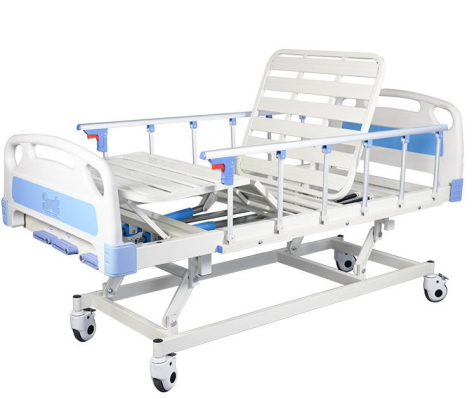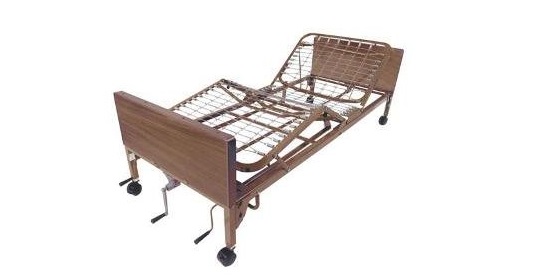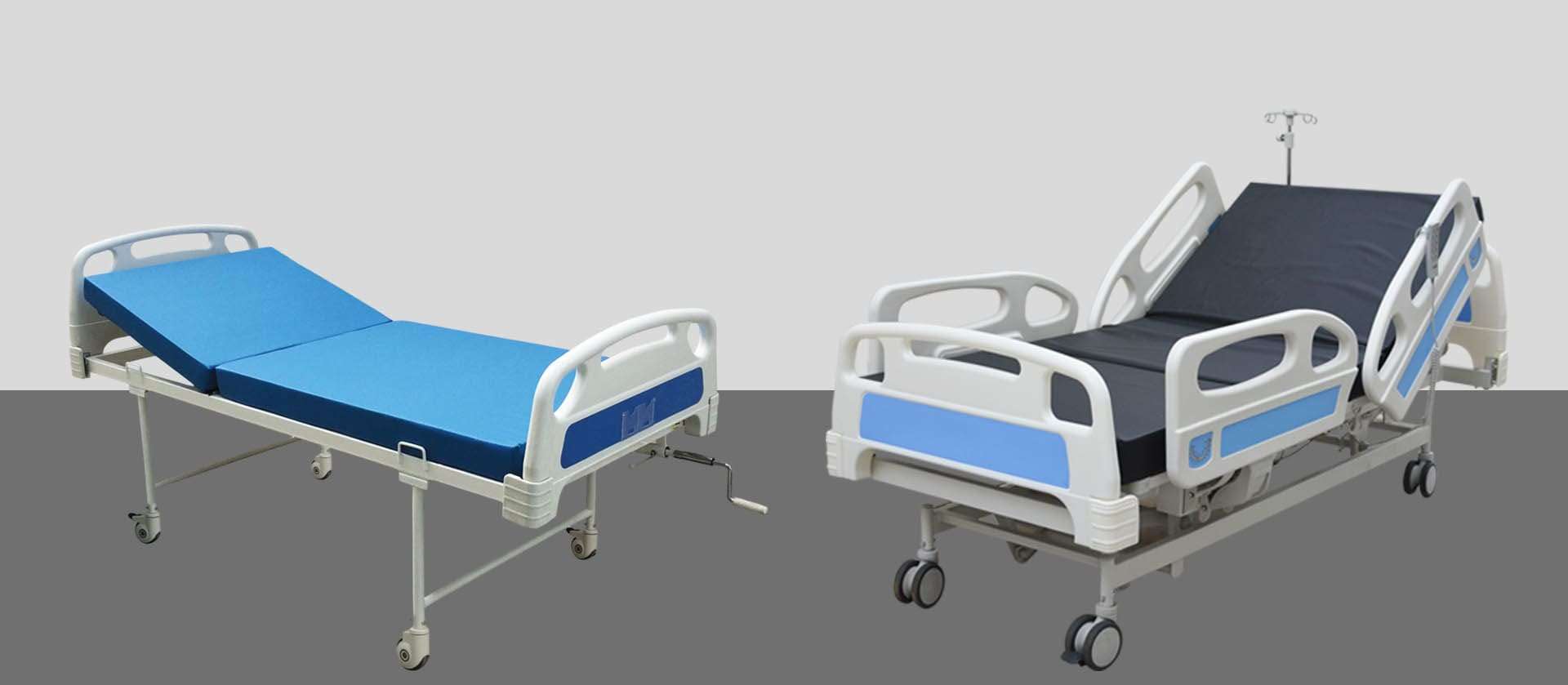Getting The Hospital Beds For Home Use To Work
Getting The Hospital Beds For Home Use To Work
Blog Article
A Biased View of Hospital Beds For Home Use
Table of ContentsThe Basic Principles Of Hospital Beds For Home Use Some Known Facts About Hospital Beds For Home Use.The 6-Minute Rule for Hospital Beds For Home UseHospital Beds For Home Use Can Be Fun For AnyoneThe smart Trick of Hospital Beds For Home Use That Nobody is DiscussingFascination About Hospital Beds For Home UseFascination About Hospital Beds For Home Use
There are three main kinds of healthcare facility beds: manual, semi-electric, and fully-electric. Even more types of clinical beds exist and they are detailed below. These beds make use of hand cranks to adjust the bed's height and elevate and lower the head and the foot. Hand cranks are commonly located at the foot of the bed and require an individual that is physically with the ability of operating.
Semi-electric beds have an electric motor to raise and decrease the head and foot sections of the bed (hospital beds for home use). Full-electric beds have an electrical motor that can elevate the head and foot areas of the bed as well as the entire elevation and positioning of the bed.
Some Known Questions About Hospital Beds For Home Use.
There are numerous types of hospital beds, each designed to satisfy specific client requirements. Here are some usual types: This is the most common type of medical facility bed, developed for basic clinical usage.
Lower to the ground than a common bed. This sort of bed is developed for larger patients, with a bigger framework and greater weight ability than a basic bed. This sort of bed is created particularly for youngsters, with smaller sized dimensions than a conventional bed. Unique functions such as complete size side rails and anime design.
This sort of bed is made for critically sick clients who need open monitoring and specialized clinical tools such as ventilators and infusion pumps. This kind of bed is developed for usage throughout labor and shipment, with adjustable positions and features to support the mommy and infant throughout the birth procedure.
Getting My Hospital Beds For Home Use To Work
Several feature and the devices execute broadening traction to various components of the vertebra and the extremities without moving the body. These are just a couple of examples of the sorts of hospital beds available. The specific kind of bed made use of will rely on the client's condition, medical demands, and other aspects.
Here is the important things you need to understand. A one-function health center bed is a medical bed that allows an individual to relocate only the head or foot area up or down. A 2 feature medical facility bed commonly refers to a sort of clinical bed that has two adjustable features to assist patients in medical facilities or care facilities.

Some Ideas on Hospital Beds For Home Use You Should Know
A 7-function ICU bed is a kind of medical bed that gives a number of adjustable features to support seriously ill people in a critical care unit (ICU) (hospital beds for home use). The seven features normally include: Back-rest adjustment: The back-rest can be adapted to numerous angles to help the client rest up or relax comfortably
Height adjustment: The bed can be increased or decreased to make it much easier for patients to obtain in and out of bed, and for caretakers to supply treatment. Trendelenburg setting: The whole bed can be tilted to promote blood circulation and flow in the body. Reverse Trendelenburg placement: The bed can likewise be slanted in the contrary direction to promote blood circulation and circulation in the upper body.
While even more economical than electric designs, these beds need exertion for adjustments. The primary advantages of hands-on beds are their price and reliability, as they don't depend on electrical energy. Nonetheless, the need for manual effort can be a restriction in circumstances where fast changes are essential or where caretakers encounter physical challenges.
Hospital Beds For Home Use for Dummies
Semi-electric medical facility beds supply a balance of handbook and electrical controls. These beds offer an excellent middle ground in between guidebook and completely electrical options, using ease of use without the complete price of electric models.
Semi-electric beds are well-suited for individuals that require moderate changes to the head and foot sections but can handle without constant elevation changes. This makes them a cost-efficient service for those seeking comfort and comfort without the demand for constant repositioning. Completely electric health center beds include electric controls for seamless adjustments to the height, head, and foot sections.
Specialty healthcare facility beds, such as ICU beds, lasting treatment beds, and bariatric beds, are meticulously made to address particular medical needs. These beds provide tailored look after diverse patient teams, boosting both end results and convenience. In the adhering to areas, we will check out the main kinds of specialized hospital beds, outlining their specific advantages and applications.
With years of experience in making electric direct actuators - hospital beds for home use and close collaboration with the healthcare industry, TiMOTION is well-positioned to give reputable health care options. Our up and down integrated company manages every action of the production procedure, from style to actuator assembly, guaranteeing we provide phenomenal worth and personalized solutions customized to your certain requirements
The Greatest Guide To Hospital Beds For Home Use

To learn site here even more regarding integrating these innovations into your products, call us today. Additional analysis:.
Data is sourced from the Medicare Cost Record.

The Facts About Hospital Beds For Home Use Revealed
A hospital bed is a bed made particularly for medical objectives. It is not only an area for clients to relax, however also a system for clinical operations. Unlike ordinary home beds, hospital beds normally have adjustable functions, which can facilitate clinical personnel to make different adjustments according to the needs try these out of clients, such as altering the height, disposition, and assistance angle of the back and legs of the bed.
Report this page